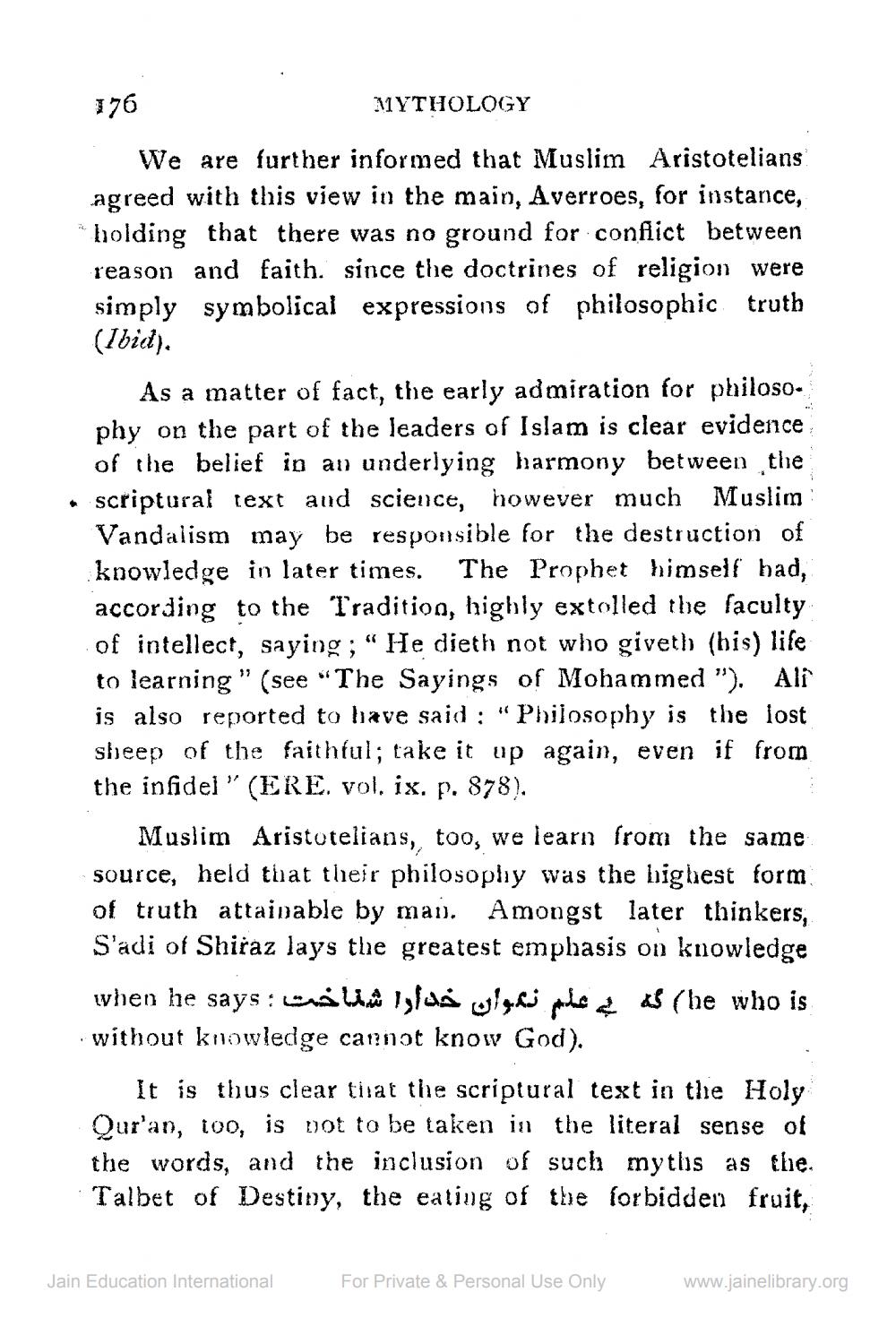________________
176
MYTHOLOGY We are further informed that Muslim Aristotelians agreed with this view in the main, Averroes, for instance, * holding that there was no ground for conflict between reason and faith. since the doctrines of religion were simply symbolical expressions of philosophic truth (Ibid).
As a matter of fact, the early admiration for philoso. phy on the part of the leaders of Islam is clear evidence of the belief in an underlying harmony between the scriptural text and science, however much Muslim Vandalism may be responsible for the destruction of knowledge in later times. The Prophet himself bad, according to the Tradition, highly extolled the faculty of intellect, saying ; "He dieth not who giveth (bis) life to learning" (see "The Sayings of Mohammed "). Ali is also reported to have said : " Philosophy is the lost sheep of the faithful; take it up again, even if from the infidel" (ERE. vol. ix. p. 878).
Muslim Aristotelians, too, we learn from the same source, held that their philosopliy was the highest form. of truth attainable by mai). Amongst later thinkers, S'adi of Shiraz lays the greatest emphasis on kuowledge when he says:wnlü islas Wlo.fj polo se as (he who is without knowledge cannot know God).
It is thus clear that the scriptural text in the Holy Qur'an, too, is not to be taken in the literal sense of the words, and the inclusion of such mythis as the Talbet of Destiny, the eating of the forbidden fruit,
Jain Education International
For Private & Personal Use Only
www.jainelibrary.org




